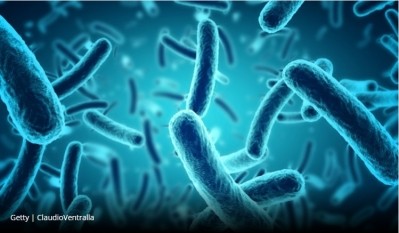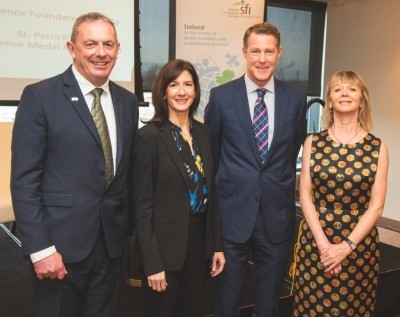DuPont to discuss infant gut microbiota role as part of TED Talk series

The talks allow six of DuPont’s scientists to share their thoughts on topics as diverse as the use of brain scans to understand taste response for more nutritious and sustainable food products.
Other topics that appear in the line-up include the efforts made to transform and optimise oilfield systems with molecular biology, a talk given by Geert van der Kraan, research scientist, discovery and applications at the Danish-based company.
“A deep passion and curiosity for science and how we can use science to create more sustainable solutions for tomorrow is the core of DuPont Nutrition & Biosciences,” says Angela Naef, DuPont nutrition & biosciences technology and innovation leader.
“The six TED Talks give a unique insight into the aspirational research our scientists work with across a variety of fields and are a great presentation of how we work to discover new innovations.”
Personalised probiotics?
One timely insight is the talk given by Henna-Maria Uusitupa, DuPont’s senior scientist and technical lead of infant health.
Entitled, ‘Tackling the worldwide obesity pandemic with early gut microbiota,’ Uusitupa examines the role of infant gut microbiota on overall health later in life.
Here, she makes reference to research indicating the beneficial bacteria acquired as infants helps keep humans healthier into adulthood.
Uusitupa’s presentation also discusses the disruptions in early gut microbiota development, caused by C-section birth, antibiotics and environmental as well as nutritional factors.
This may have a crucial role in the development of overweight and obese conditions, which are increasingly prevalent in children and adolescents.
Henna-Maria Uusitupa’s research also deals with how customised pre- and probiotic products could reintroduce the lost beneficial microbes to infants to tackle health problems such obesity.
The idea of personalised products targeting the microbiome is one that is gathering momentum as the very concept pairs up two of the strongest trends to dominate the nutrition industry.
In May this year, OptiBiotix Health revealed news of a deal involving its Lactobacillus plantarum (LPLDL) probiotic strain as the UK-based firm signs a license agreement with a Spanish personalised nutrition firm.
LPLDL is said to harness the microbiome-liver axis to positively impact upon the gut microbiome, specifically focusing on the modulation of bile acid metabolism.
This activity is important to bacterial survival in the intestine’s hostile environment and aids conditions such as high blood pressure and high cholesterol, as well as physiological processes including vitamin metabolism, glucose regulation and liver function.
‘Routine in five years’
Professor Tim Spector of the genetic epidemiology department at Kings College London, went one step further predicting the practice of giving personalised gut health advice would be standard medical practice in a few years.
“In five years this will be routine,” he said. “You can tell more from gut microbes than you can from DNA, and I’m a geneticist.”
“At the moment people have problems with their diet or gut health that GPs can’t help them with like obesity, allergies or IBS Irritable Bowel Syndrome (IBS).”
Other presentations available include one from Camilla Arndal Andersen, entitled, ‘Using brain scans to understand taste response for more nutritious and sustainable food products.’
Andersen, a scientist at DuPont, presents her research on how food flavours provoke specific brain response.
By using brain scans, studies of food perception are no longer limited by vocabulary or the capacity of the conscious mind.
Her studies show that our bodies react to flavor differences even though we are not consciously aware of them.
Unconscious food attributes may therefore prove to be vital to food experience and could be used to replace traditional ingredient sources with healthier or more sustainable options without sacrificing taste.
While Uusitupa’s presentation is available in early 2020, Andersen’s presentation is available to view here.















